S.C. Skillman's Blog, page 56
March 9, 2015
The Psychology of Mother and Son in the Psycho Prequel “Bates Motel”
My daughter Abigail, Creative Media Production student, has recently completed a project on Alfred Hitchcock’s editing technique in Psycho.
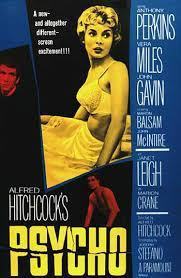
Alfred Hitchcock’s 1960 masterpiece Psycho
So I’ve watched Psycho again several times recently. And my fascination with the subject led me to pick up the books Abigail had gathered for her project, and read them myself. Editing techniques in film can of course be applied to fiction writing too; what you choose to show, and the way you cut it together, can play a vital role in creating an emotional response in the audience. Hitchcock was the master of this, and profoundly influenced the history of film with his genius.
Over the last week we’ve been watching the DVDs of the US TV series Bates Motel, which is a prequel to the events of Psycho, set in the contemporary world, and showing how Norman developed to become the figure Anthony Perkins so famously portrayed in Hitchcock’s 1960 film.
We’ve now watched 6 episodes of Bates Motel in which the young Norman is played brilliantly by , (who looks like a young Anthony Perkins); his mother Norma is played by ; and an additional character Norman’s older brother Dylan, is played by .
This is the most discerning portrayal of dysfunctional family dynamics. As a writer of psychological suspense fiction myself I cannot help but be mesmerised by the skill with which Norman’s early life is portrayed, and by the clarity and focus with which it accounts for Norman’s behaviour in Psycho. The series is highly focussed in what it says about unhealthy mutually-interdependent relationships, in this case, between a mother and son.
IN particular Vera Farmiga as Norma is outstanding, as she portrays the toxic mix of Norma’s psychological make-up. We watch mesmerised as the pace of events, and the choices she makes, precipitate her into rapid changes between being over-affectionate, unreasonable, controlling, proud and hard, aggressive and emotionally manipulative. Finely blended into this mix, we find flashes of callous indifference, mental cruelty and martyr complex, as she puts guilt on Norman.
Dylan, the older brother is an inspired addition to the gallery of characters, one whom we didn’t see in Psycho. In Bates Motel he represents normality. As he says about Norma: “She’s always got a drama, and she always will. She’s like an addict. And when you have an addict in your life the best thing you can do for them is walk away from them…” “You’ve just got to get away from mum,” he says to younger brother Norman. “She’s just going to bring you down with her.” How prophetic of the events in Psycho.
And as you follow the twists and turns of the plot, you see how Norma has a talent for creating alternative scenarios when things go wrong, which serves only to complicate things further and make them far worse.
Dylan tries to persuade her to “stop making up stories”. As you watch the drama, you just long for Norman to accept Dylan’s offer to leave his mother and go to live with Dylan instead. You start to persuade yourself that this could be the vital moment of choice, when, if Norman had taken this step, he might have been saved from the tragedy and horror of the future as presented in Psycho.
And yet you still can’t help thinking: would that help? How would Dylan deal with Norman’s mental health problem? Would Norman end up killing Dylan instead?
If you’re at all interested in the psychological suspense/thriller genre, do get hold of the DVDs of “Bates Motel” and see for yourself!
Filed under: 1960s, British psychological suspense writer, creative writing, films, interpersonal relationships, life, media, movies, musings, psychological suspense fiction, psychology, SC Skillman, SC Skillman Author, thoughts, TV programmes, Writing Tagged: Anthony Perkins, brilliant portrayal, drama, Hitchcock, Norman Bates, psycho, psychological suspense, SC Skillman, TV series

March 2, 2015
Two Excellent BBC Drama Offerings: Wolf Hall and A Casual Vacancy

Michael Gambon & Julia McKenzie in the BBC’s The Casual Vacancy
We’ve recently seen two very good dramatizations on BBC TV: Wolf Hall, and The Casual Vacancy.
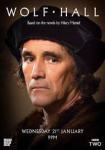
Mark Rylance as Thomas Cromwell in the BBC’s Wolf Hall
The casting was brilliant, particularly as Thomas Cromwell in Wolf Hall, and as Howard in The Casual Vacancy.
You may think think the two novels on which these dramatisations were based, Wolf Hall by Hilary Mantel and A Casual Vacancy by JK Rowling, could hardly be more different; one story set in the sixteenth century Tudor Court, and the other in our contemporary society. And yet I found striking points of similarity.
In the world in which the two novels are set, we see how central tribalism is to human nature. The historians I have read on the subject of the Tudor Court have emphasised how everything revolved around factions. In Thomas Cromwell’s world he had to navigate the changing fortune of the factions: when the Boleyn faction was in the ascendancy, he advanced the cause of Anne Boleyn; but when the Seymour faction began to gain the upper hand, it was politic for Thomas to bring about Anne’s downfall to make way for Jane Seymour. After all, in that “dog eats dog” world his own life was always at stake.
In The Casual Vacancy we see how the wealthy and privileged, in our most favoured and idyllic villages, gather together and dominate the local council and influence decisions about the local community in their own favour, so that the poor and marginalised are separated from them even further. JK Rowling is showing us something of how this same principle of tribalism, is replicated in English society today:how members of one group gather together to increase their power over the other: those who consider themselves socially ‘superior’ cluster together and fend off those who are perceived as failures, the socially dysfunctional.
Humans are tribal and we see this in every sphere of our lives.
In today’s western societies we might not turn to genocide and massacres of the kind we have seen in other countries of the world in the past few decades, because our ‘veneer of civilisation’ is still strong enough to prevail; but we are certainly capable of expressing the same dark undercurrents in our hearts and minds, by using other, more subtle methods, to achieve similar ends. The same tribalism is there, deeply rooted in our psyches.
Click here and here to find my own reviews of both books.
Filed under: About Books I love, Authors I love, book reviews, Books, British, British psychological suspense writer, history, life, media, musings, SC Skillman, SC Skillman Author, thoughts, TV programmes, UK, Writing Tagged: A Casual Vacancy, BBC Drama mini series, contemporary society, English, SCSkillman, tribalism, Tudor Court, Wolf Hall

February 23, 2015
People of Inspiration: The Enduring Love of Mozart’s Requiem
“Mozart stopped writing here.”

Wolfgang Amadeus Mozart
Those were the words one soprano had written after bar 8 of the Lacrymosa in her score of Mozart’s Requiem: just so she could be sure which bits were from the hand of the master, and which from his much-less gifted composer friend Franz Sussmayr. We were singing with the choir Spires Philharmonic Chorus, who are currently rehearsing Mozart’s Requiem for a performance at Holy Trinity Church Coventry on Saturday 11 April 2015 (those readers local to Coventry please note in your diaries!)
I was tempted along to these rehearsals by Mozart himself. The lure of singing his requiem once more was too much to resist.
Mozart’s Requiem is justifiably renowned for its sublime beauty; but it also gains fame for the quirky and curious stories which surround its composition. Most of this confusion, I understand, derives from different interviews given by Mozart’s wife Constanza who made considerable efforts to mask the truth about the Requiem, in the months and years following Mozart’s death in Vienna in 1791. On 18 January 2015, I saw a BBC TV programme The Joy of Mozart in which the presenter Tom Service was lamenting the false image of Mozart pedalled by the commercial Mozart industry in Salzburg. One of these popular ideas is that after Mozart died, his body was callously thrown into a mass grave in the St Marx Cemetery in Vienna, and he had a “pauper’s funeral” utterly disregarding his status as one of the world’s greatest composers. Yet these facts are probably totally misinterpreted by those who misunderstand normal burial arrangements in his society at that time.
Additionally a popular idea about Mozart is that he composed his Requiem in the knowledge that he was about to die, believing it to be his own requiem. Yet it has recently been pointed out at the time Mozart would have expected to recover from his illness, finish the requiem, and write much more music besides.
At the end of The Joy of Mozart, Tom Service observed that the final word has to be with those who love his music.
As I sing this requiem I respond to it not as a musicologist – although our chorus founder and conductor ColinTouchin provided as much of that as we could have wished for – I respond to to it on a profound emotional level. The very first chord of this requiem has such a powerful effect upon me; I cannot begin to analyse it. Although as Colin Touchin told us it is thought that Mozart was the very first composer to use the key of E Flat Minor, and I do sometimes think it must be good to analyse the reasons why this music effects us so deeply, I also think the rest of us just have to accept the profound emotional impact Mozart’s music makes, and leave it at that. We are left with this, beyond all the musicology and the analysis.
We know that Mozart managed to complete only parts of the requiem before he died, and the rest was completed by Franz Sussmayr, selected for the job by Mozart’s widow Constanza, who was worried she wouldn’t get paid for the requiem if she didn’t find someone to finish it; and she chose Sussmayr only after she’d considered other candidates and rejected them. It seems a game we cannot resist, to convince ourselves that certain bits cannot possibly have been written by Sussmayr, they must have been written by Mozart. Yet the fact remains that Sussmayr, not considered by musicologists to have been a particularly outstanding composer, did indeed complete the requiem and did it so creditably that the requiem remains one of the most loved and revered pieces of choral music ever written. What a task that must have been for Sussmayr; and perhaps my best insight into his situation lies in this idea: if I imagine how I would feel if I were asked to complete an unfinished novel by Jane Austen.
Filed under: classical music, life, love, music, musings, people of inspiration, SC Skillman, SC Skillman Author, thoughts, TV programmes Tagged: beauty, choral music, composer, Constanza, inspiration, joy, love, most loved, Mozart Requiem, SC Skillman author, sublime, Sussmayr

February 14, 2015
Did You Struggle With The Large Number of Characters in JK Rowling’s A Casual Vacancy? Here’s a Useful Crib-Sheet!
BBC 1 will be starting the first of a three-part mini series of JK Rowling’s A Casual Vacancy on Sunday at 9pm. I’m delighted that the BBC have chosen to adapt it as a drama, and will be watching eagerly. I have a high opinion of the book: see my book review here.
I was fascinated to learn that the screenwriter Sarah Phelps has, with JK Rowling’s agreement, changed the ending; she says “it needs some kind of redemptive moment at the end”. This tuned in with my own observations in my review, where I wrote:
“However, although I enormously admire what JKR has done in this story, I still feel it lacks a strong enough spiritual message or act of redemption at the end; and the potential for that is very strongly present as the narrative progresses…. It’s only JK Rowling’s decision not to take the opportunity for a stronger redemptive message which prevents me from giving her book the highest possible rating.”
If you’ve read the book and struggled with the number of characters, here’s my own personal cribsheet of every named character in the novel. I created this list as I read the novel. Some of those named are not developed as characters at all, but are simply referred to. I hope you find this list helpful; though of course when you watch the mini-series you probably won’t have a problem keeping up with the characters, because the actors will make a big difference.
SC Skillman’s CRIB SHEET OF ALL THE CHARACTERS IN
A CASUAL VACANCY
by JK Rowling
Barry Fairbrother, “bearded little man”, Parish Counsellor, Bank Manager, who dies of an aneurysm at the beginning of the novel
His wife Mary, and their children Declan, Fergus, and twins Niamh and Siobhan
Miles Mollison, solicitor, in partnership with Gavin Hughes
Samantha, Miles’s wife
Their daughters Lexie and Libby who go to St Anne’s Independent School in Yarvil
Howard, Miles’s father, owner of delicatessan, Chair of Parish Council, 1st Citizen of Pagford
Shirley, Howard’s wife, Miles’s mother; she is a hospital volunteer, had hated Barry Fairbrother, and administers the Council’s website
Patricia, their daughter, Miles’s sister
Gavin Hughes, squash partner of Barry’s, solicitor in partnership with Miles
Kay Bawden, social worker, Gavin’s lover
Gaia, Kay’s daughter
Una, Alex and Mattie, Kay’s social services colleagues
Colin and Tessa Wall, friends of Mary and Barry. Colin is a Deputy Headteacher and Tessa is Head of Guidance.
Stuart their son, known as “Fatso”, who is best friends with Andrew Price, and has a sexual relationship with Krystal Weedon
Ruth Price, a nurse
Simon Price, Ruth’s husband, abusive and boorish to his family, runs a printworks, is particularly aggressive to his elder son Andrew
Their son Andrew who has a bad attitude to his father Simon, and who fancies Kay’s daughter Gaia
Andrew’s younger brother Paul
Maureen, Howard’s business partner in the Delicatessan, age 62, widow of Howard’s previous business partner Ken
Shona, Miles and Gavin’s legal secretary
Dr Parminder Jawanda, local GP, Parish Counsellor, had loved Barry Fairbrother
Vikram, her handsome husband, cardiac surgeon
Their three children: Jaswant, Sukhvinder and Rajpal
Mrs Shawcross, headmistress
Aubrey Fawley who purchased Sweetlove House in the 1950’s and had four children
Young Aubrey, his son, Pagford’s rep on the Yarvil Council, a merchant banker in London
Julia, Young Aubrey’s wife
Alison Jenkins, news reporter
PEOPLE WHO LIVE IN or are associated with people who live in “THE FIELDS”
Terri Weedon, a drug addict and dysfunctional mother
Krystal, her daughter, problem pupil
Robbie, Krystal’s little brother (Terri’s son), in danger of being removed by social services
Anne-Marie, their sister, (Terri’s other daughter) no longer living with them
Obbo, drug-pusher, who sells drugs to Terri
Nikki, Jemma and Leane, Krystal’s schoolfriends
Nana Cath, Krystal’s great-grandmother, and Terri’s grandmother
Rhiannon, another of Nana Cath’s granddaughters (Terri’s cousin?)
John and Sue, Nana Cath’s son and daughter
Cheryl and Danielle, Terri’s sisters
Dane Tully, dysfunctional teen, his father and two brothers are frequently in prison
Filed under: About Books I love, Authors I love, book reviews, Books, British, creative writing, life, media, SC Skillman, SC Skillman Author, thoughts, TV programmes, UK, Writing Tagged: A Casual Vacancy, BBC Drama mini series, characters, JK Rowling, list of characters, useful cribsheet

February 9, 2015
Thoughts on Christianity and Paganism, by Blogger/Author Vivienne Tuffnell
Here’s a blog post which I found very touching. It’s an interview with fellow-author Vivienne Tuffnell, whose blog I follow, (with the lovely title of “Zen and the Art of Tightrope Walking”). In this interview Vivienne says a number of things which I identify with, including her observations about Christianity and paganism, and also her experiences with, and feelings about blogging. Sometimes another writer expresses something so perfectly, you feel as if that writer has spoken for you. Do take a few minutes to read what Vivienne says in her interview.
 Originally posted on Ailsa Abraham:
Originally posted on Ailsa Abraham:
I’m joined in the Bingergread Cottage today by a dear friend with whom I share a lot. Welcome, Vivienne and make yourself at home. Don’t give Lily the cake, it’s chocolate and she doesn’t like it anyway. Help yourself to tea or coffee and let’s have a chat.
Mmmmmm coffeeeee and cake….
We’ve both had a rather “meandering” spiritual path, haven’t we? Tell us about yours.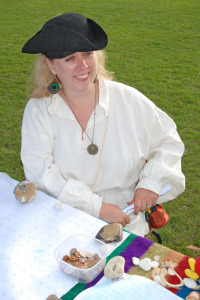
I’ve been drawn to the mystical my entire life. I remember creating a shrine in my bedside cupboard when I was about eight or so. I chose to become a Christian when I was twelve but while I still would define myself as a follower of the Christ, I suspect that I’m not Christian enough for many Christians and not pagan enough for many pagans. I’ve been labelled a witch a few times (with the addition of white or green or even Christian) because…
View original 630 more words
Filed under: creative writing, dreams and dreaming, empowerment, faith, inspiration, life, musings, people of inspiration, religion, SC Skillman, SC Skillman Author, spirituality, thoughts, Writing Tagged: authyor, blogging, Christianity and paganism, SC Skillman author, Vivienne Tuffnell

February 2, 2015
Book Review: “Miracles” by Eric Metaxas
This book was recently recommended to me: Miracles: What They Are, Why They Happen, and How They Can Change Your Life. I’ve now reading it and found it a fascinating book ideal for discussion in a group.
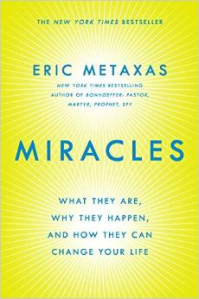
Miracles by Eric Metaxas
Metaxas is renowned as the author of a much-admired book on Dietrich Boenhoffer (published in 2011). In this new book, he turns his attention to a vitally important subject: our worldview and how it affects our perception of reality.
In the first half of the book Metaxas examines the rules by which we may determine that an event is “a miracle”.
One of his most compelling early chapters is about the miracle of life on earth. As a counterpoint to Stephen Hawking’s observation that We are just an advanced breed of monkeys on a minor planet of a very average star Metaxas gives us a taster of the vast number of fine-tuned characteristics which are necessary to support life. As I read this chapter it put me in mind of one of my own favourite quotes, which comes from Joseph Conrad’s novel Lord Jim:
This is Nature – the balance of colossal forces… the mighty Cosmos in perfect equilibrium produces – this.
Beyond this, Metaxas goes on to consider the picture of God breaking through into the natural world with miracles, like a great tree bursting through concrete. He examines the questions of God’s apparent “selectivity” – why do some people’s lives benefit from miraculous intervention, and others not?
In the second half of the book Metaxas gives accounts of miracles which happened to himself and to people he knows personally. These stories of miracles are robust and compelling. Some are disturbing, creepy and challenging. Near the end of the book he relates a 9/11 story which holds you transfixed. And he ends with a challenge both intellectual and spiritual.
I found this book thrilling, uplifting and enormously encouraging. Throughout my life there have been times when I’ve instinctively felt something to be true, without having the necessary resources of intellectual argument to lay it on the table before others. In this book, Metaxas encourages us to fully engage our minds on a subject which is far too easy to talk or think about in a “loose” or “woolly” way.
If you possibly can, find time to read this book and to consider what Metaxas says.
Filed under: About Books I love, Authors I love, book reviews, Books, inspiration, life, media, movies, musings, religion, SC Skillman, SC Skillman Author, spirituality, thoughts Tagged: book review, Eric Metaxas, God, miracle of life, Miracles, miraculous intervention, SC Skillman author, spiritual

January 26, 2015
Film Review: “Philomena” starring Steve Coogan and Judi Dench
I belong to a Film Club which meets every 2 months and a few days ago our film of choice was Philomena.
I’ve now watched it four times in as many days, and during that time I’ve been haunted by the characters, by the story, and by what it tell us about life and about what it means to be human.
I haven’t read the novel by Martin Sixsmith, but it does seem to me from the Amazon reviews of the novel, that Steve Coogan’s choice to make a film of the story, focussing on the relationship between Philomena and Martin Sixsmith in their search for Philomena’s long-lost son, was an inspired choice, and created something far more powerful, moving and effective than the novel which focused on the life of Philomena’s son Michael Hess (born Anthony Lee).
Our film club group had a lively discussion about the film after viewing it, and we examined different angles, with views expressed that see the events from both sides. I think what I like most of all about the film is that it avoids a black and white view of Philomena’s story, which could so easily be “cruelly wronged woman against evil Catholic nuns” (beautifully parodied by Steve Coogan early in the film when he says, “Evil is good. I mean – story-wise.”) The message of the film is far more subtle and complex than that, and brilliantly conveyed in the dynamics of the relationship between Philomena (portrayed by Judi Dench) and Martin Sixsmith (played by Steve Coogan).
And of course the film contains some incisive dialogue about the Catholic Church. As I consider the message I’m left with this thought; how dangerous the challenges and demands of an authoritarian religious faith can be; leading some along the path of harshness, cruelty and judgementalism, and others into the highest reaches of self-sacrifice, holiness and goodness. It’s almost as if, behind it all, lurks the complexity and unaccountability of human psychology, which we can never ignore.
This Guardian article is the best review of the film that I’ve come across which acknowledges this subtlety and the far deeper observations that are being made about the Catholic Church.
Filed under: British, culture, films, interpersonal relationships, life, media, movies, news, SC Skillman Author, thoughts Tagged: Catholic Church, evil, film review, goodness, Judi Dench, Philomena, psychology, religious faith, SC Skillman author, Steve Coogan

January 19, 2015
Inspirational Tale of African Girl Who Triumphs Through Adversity
I’ve just read and reviewed a powerful and affecting story on Kindle, Eleven Miles by Lance Greenfield.
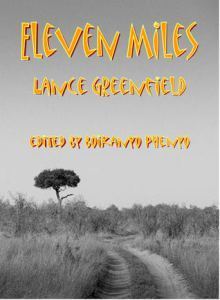
Eleven Miles by Lance Greenfield
I understand the novel was inspired by a village girl, Boikanyo Phenyo, from the Okavango Delta in northern Botswana. The life prospects for girls born into such circumstances are limited: school till the end of primary education, get married, have five or six children, die too early. That is unless you can gain high education. This lady walked eleven miles to secondary school, and eleven miles home, every day for five years just so that she could go on to university.
“Eleven Miles” shows how adversity can, in the right circumstances, sharpen up the resolve to succeed. Through this account of the teenage years of Boi, a gifted young girl from Botswana, Greenfield provides us with a strong contrast to the “entitled” mind-set that comfortable Western culture can sometimes engender.
“Eleven Miles” shows us how one girl builds on her gifts and meets the challenges of adversity to achieve her dreams of academic and sporting excellence, The adversities she must face include having to find enough money for school fees from the earnings of numerous family members; the lack of transport for the 11 mile journey to school, meaning her only option is to go on foot; added to the necessity of having to collect water and firewood on top of this every day when she gets home from school; and all this in the context of not having enough to eat (a hunk of bread for breakfast, and the same again for lunch). In addition to these, Boi must face cruelty, injustice and tragedy, before she wins through to her prize.
Despite the inspirational quality of the story, I never really felt I understood where or how Boi had gained her phenomenal determination and focus. She clearly has a gift which can never be explained but I wished I could have had a much deeper insight into the weaknesses and vulnerabilities of her character; this would helped me feel her eventual triumph more intensely.
Despite this, the strength of the story itself shines through, and I find myself haunted by it, and the message of the book stays with me.
Do download the novel now; it’s a simple, very readable tale which I recommend to you! Half of the profits from the sale of this novel go to Boikanyo Phenyo’s project to buy a school bus for the villages of her home area.
Filed under: About Books I love, book reviews, Books, empowerment, inspiration, life, musings, people of inspiration, SC Skillman, SC Skillman Author, thoughts, Writing Tagged: book review, Botswana, Eleven Miles, inspirational, kindle, Lance Greenfield, powerful, SC Skillman author, school bus project for village children

January 12, 2015
The Sublime Landscape of JRR Tolkien and His Creative Vision – in The Hobbit: The Battle of the Five Armies
I saw the last Hobbit film two days ago: The Battle of the Five Armies.
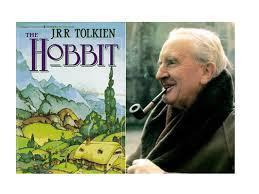
The Hobbit 1st published 1937 and its author JRR Tolkien
And as I watched it I had a strong feeling of making the most of his final cinematic visit to Middle-earth. Everything was exploited to its fullest extent, the brutality of battle, the sublimity and peril of the landscape, the tragedy of a hero lost in his lust for gold, the goodness and simplicity and down-to-earth appeal of Bilbo, the ugliness and brutishness of the orcs, the grandeur and regality of the elves, the mystical presence of Galadriel.
As a lover of JRR Tolkien and the fantasy world he created, I first read The Lord of the Rings, The Hobbit, and the Silmarillion while I was at university. When I read the Hobbit I remember loving it even more, if that were possible, than The Lord of the Rings. I felt it contained all that the longer book contained, but within a smaller, more compact package. I don’t think it’s possible to think this about Peter Jackson’s Hobbit films! Even so, I felt in this final trip to Middle-earth Peter Jackson excelled himself in terms of long scenes of extended hazard, in archetypal themes of love and compassion versus cruelty, brutality, and the lust for gold. How glad I was when the Lady Galadriel appeared in the dark, craggy, landscape in her shining white robes. And when Bilbo finally said he was off home, I thought, Cue for the eagles to fly in and give him a ride back to The Shire. But no. He had to walk. I loved the way the landscape grew greener and more warm and welcoming as he approached closer to Hobbiton.
Considering the very unassuming and childlike way in which the original novel The Hobbit begins, who could ever have guessed it would lead on to such heights of creative imagination. And in the world he created, JRR Tolkien gave us many poignant and ominous reflections upon our own world, on the nature of life, and the human condition, as well as the spiritual purpose and destiny of the human race.
Filed under: About Books I love, Authors I love, book reviews, Books, British, films, inspiration, life, literature, love, media, movies, musings, people of inspiration, SC Skillman, SC Skillman Author, spirituality, thoughts, Writing Tagged: JRR Tolkien, Middle-earth, mystical, Peter Jackson, SC Skillman author, spiritual, The Battle of the Five Armies, The Hobbit

January 7, 2015
Lance’s Coach Tour
Here is a delightful blog post by Lance Greenfield, one of the first reviewers of Mystical Circles on Goodreads. Thank you, Lance, for your tour of Stonehenge, one of my favourite places!
 Originally posted on Lance Greenfield:
Originally posted on Lance Greenfield:
Welcome aboard the inaugural coach tour for followers of Lance Greenfield’s blog.
This is the first of many exciting day trips that I shall be running for invited blogging friends. We can enjoy the company of fellow bloggers as we tour through time and space. We will meet many interesting characters from past and future, and some of the places we may visit will be beyond our wildest dreams.
I am open to suggestions for where and when we might venture on future coach tours, but today we are going to visit a world famous historic site which is only twelve miles from my current humble dwelling in the south of England.
Today’s trip takes us to Stonehenge!

Sunrise at Stonehenge
First on board are my old friends Eloise and Lucie. They quickly settle down at the front of the coach and observe their fellow passengers as the climb…
View original 332 more words
Filed under: SC Skillman





